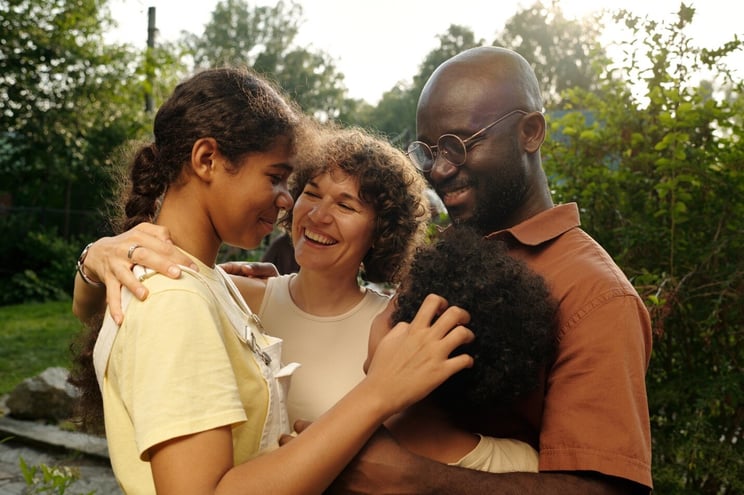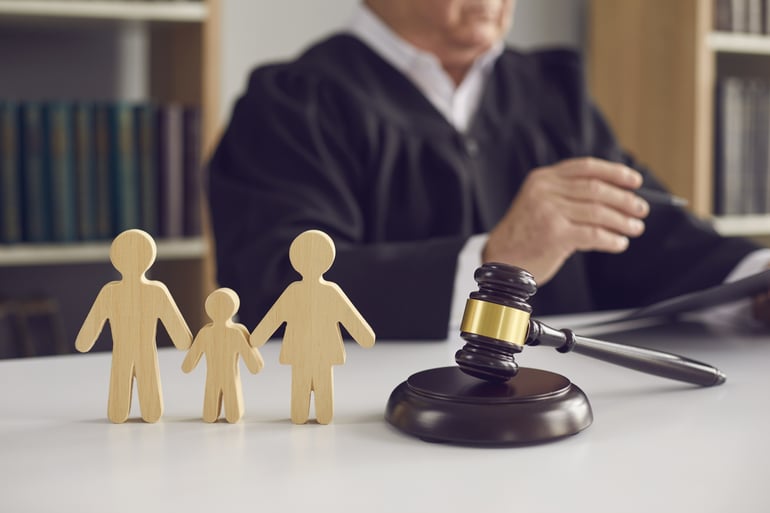
Multisystemic Therapy (MST) is a highly effective, evidence-based intervention that addresses adverse behaviors in young people, particularly those exhibiting delinquent behavior.
Grounded in principles that target various systems in a young person's life—such as family, school, peers, and community—MST provides a comprehensive approach to treatment, focusing on long-term behavioral change. Maintaining fidelity ensures that MST consistently delivers positive outcomes across these diverse systems and settings.
Read More
Topics:
Juvenile Justice Reform,
Multisystemic Therapy,
Child Welfare,
evidence-based,
Parents,
Agencies & Admin,
Juvenile Justice

For decades, wilderness camps for teens have promised life-changing results for teens who are at risk or troubled. Marketed as a last resort for desperate parents, these juvenile delinquency programs claim to rehabilitate teenagers dealing with behavioral issues, substance abuse, and mental health challenges. But beneath these promises lies a much darker reality.
Read More
Topics:
Juvenile Justice Reform,
Multisystemic Therapy,
Child Welfare,
evidence-based,
Parents,
Agencies & Admin,
Juvenile Justice

Resilience is a skill that can be learned at any age. Building resilience can help us cope in the aftermath of tragedy and trauma, and it can help us maintain mental health. With World Teen Mental Wellness Day in mind, let’s consider how we can help the teens in our lives develop resilience.
Read More
Topics:
Juvenile Justice Reform,
Multisystemic Therapy,
Child Welfare,
MST Success Stories

Diversion programs provide an opportunity for youth to receive support from their communities and families rather than interacting with the juvenile justice system. Diversion can be used as an alternative to arrest and prosecution or as a step along the way during the process of adjudication. This is a less punitive approach that focuses on keeping youth at home with their parents and avoiding criminal records that make adulthood difficult to navigate.
Read More
Topics:
Juvenile Justice Reform,
Multisystemic Therapy

The United States has more children in a youth correctional facility than any other country in the world. The American Civil Liberties Union (ACLU) states that about 60,000 adolescents under the age of 18 are incarcerated in juvenile jails and prisons on any given day.
Research shows that children who have spent time in facilities tend to exhibit physical and mental health concerns later in life and they are more likely to fall behind in school, which is an important component of staying out of the system.
Read More
Topics:
Juvenile Justice Reform,
Mental Health
 Literacy and incarceration are two words that you don't often hear in the same sentence. When you read those terms, you might feel that they have nothing in common or that they are opposites. But here's what is interesting, despite what you may think, they are closely related and there are many reasons why. The Department of Justice states, "The link between academic failure and delinquency, violence, and crime is welded to reading failure."
Literacy and incarceration are two words that you don't often hear in the same sentence. When you read those terms, you might feel that they have nothing in common or that they are opposites. But here's what is interesting, despite what you may think, they are closely related and there are many reasons why. The Department of Justice states, "The link between academic failure and delinquency, violence, and crime is welded to reading failure."
Read More
Topics:
Juvenile Justice Reform,
Child Welfare

As a result of the many events that have occurred since 2020, and are still occurring, including juvenile and criminal justice reform, a mental health epidemic, the COVID-19 pandemic, opioid overdose surges, and ongoing unemployment, practices are being put into place in order to rebuild our communities.
Read More
Topics:
Juvenile Justice Reform
 In light of Youth Justice Awareness Month (YJAM), established in 2008 to draw attention to adolescents impacted by the criminal justice system, it is time to address America’s youth crime statistics.
In light of Youth Justice Awareness Month (YJAM), established in 2008 to draw attention to adolescents impacted by the criminal justice system, it is time to address America’s youth crime statistics.
Read More
Topics:
Juvenile Justice Reform,
Multisystemic Therapy

Louisiana added Multisystemic Therapy (MST) to drug courts. This is why.
29% of high-school students reported drinking alcohol, and 22% said they used marijuana in 2019. However, studies show that due to COVID-19, young adults with mental health issues are more likely to report an increase in drinking; during the pandemic, the percentage of students who used alcohol rose to 30.4%. Using and abusing drugs as a minor has been shown to contribute to academic difficulties, mental-health problems, negative peer relationships, and involvement in the juvenile justice system. We know that adolescents are hard-wired to take risks. Thus, many teens will experiment with drugs and alcohol, and will not grow to abuse these substances. But what can be done to help those who escalate from experimentation to misuse, abuse or a substance misuse disorder?
Read More
Topics:
Juvenile Justice Reform
 Telehealth was once used as a solution to reach rural communities, underserved populations, and clients in secured facilities such as prisons, but it has now become a normality in the healthcare industry. Due to the global pandemic in 2020, healthcare systems had to quickly overcome barriers brought on by the inability to provide face-to-face services; our education, justice, and housing systems all had to do the same. Despite these unprecedented challenges, telehealth has developed a new, possibly more efficient, way to provide services to all individuals in need.
Telehealth was once used as a solution to reach rural communities, underserved populations, and clients in secured facilities such as prisons, but it has now become a normality in the healthcare industry. Due to the global pandemic in 2020, healthcare systems had to quickly overcome barriers brought on by the inability to provide face-to-face services; our education, justice, and housing systems all had to do the same. Despite these unprecedented challenges, telehealth has developed a new, possibly more efficient, way to provide services to all individuals in need.
Read More
Topics:
Juvenile Justice Reform







 Literacy and incarceration are two words that you don't often hear in the same sentence. When you read those terms, y
Literacy and incarceration are two words that you don't often hear in the same sentence. When you read those terms, y
 In light of Youth Justice Awareness Month (YJAM), established in 2008 to draw attention to adolescents impacted by the criminal justice system, it is time to address America’s youth crime statistics.
In light of Youth Justice Awareness Month (YJAM), established in 2008 to draw attention to adolescents impacted by the criminal justice system, it is time to address America’s youth crime statistics.
 Telehealth was once used as a solution to reach rural communities, underserved populations, and clients in secured facilities such as prisons, but it has now become a normality in the healthcare industry. Due to the global pandemic in 2020, healthcare systems had to quickly overcome barriers brought on by the inability to provide face-to-face services; our education, justice, and housing systems all had to do the same. Despite these unprecedented challenges, telehealth has developed a new, possibly more efficient, way to provide services to all individuals in need.
Telehealth was once used as a solution to reach rural communities, underserved populations, and clients in secured facilities such as prisons, but it has now become a normality in the healthcare industry. Due to the global pandemic in 2020, healthcare systems had to quickly overcome barriers brought on by the inability to provide face-to-face services; our education, justice, and housing systems all had to do the same. Despite these unprecedented challenges, telehealth has developed a new, possibly more efficient, way to provide services to all individuals in need.